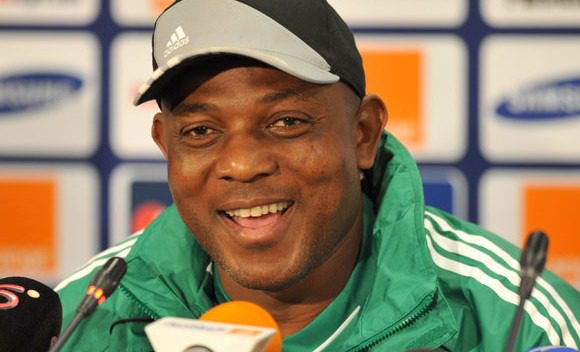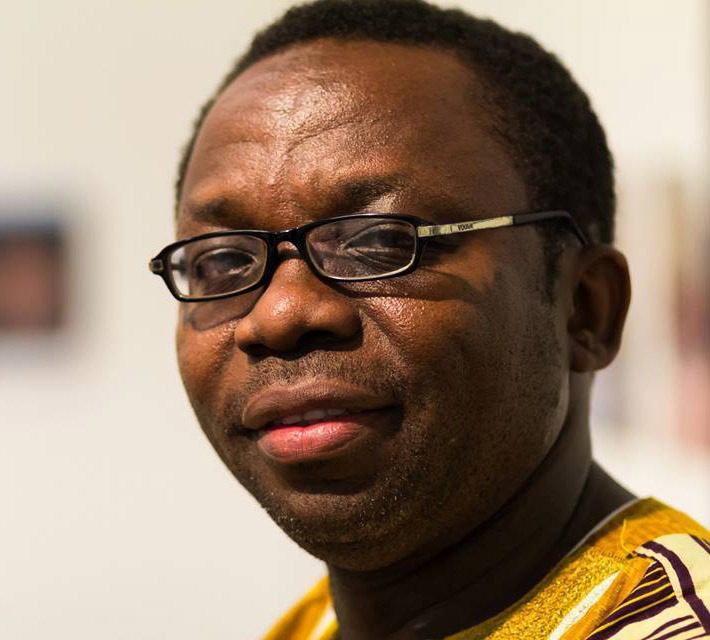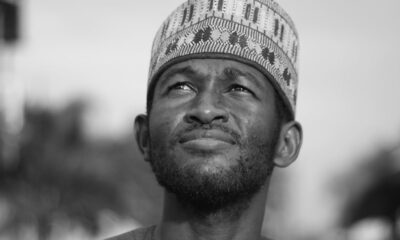Life And People
Keshi, the Big Boss, Goes Home -By Chris Ngwodo


Stephen Okechukwu Keshi is gone and the legends of yesteryears continue their migration to the shores of eternity, leaving us musing wistfully over what was and what might have been. Keshi’s career was one of breaking barriers and new grounds. He was an international superstar in a way that greats like Segun ‘Mathematical’ Odegbami and Christian ‘Chairman’ Chukwu could not be. He came from the New Nigerian Bank (NNB) football club, Benin, at a time when the dominant domestic teams were IICC Shooting Stars of Ibadan, Ranchers Bees of Kaduna, Abiola Babes and Rangers International of Enugu.
His international career bridged a long period of underachievement during which the national team was derided as “Papa Eagles” – geriatric incompetents compared to the laurel-laden age-grade teams of the 1980s – with a golden age for the Super Eagles.
He was a central figure in the decade-long quest for a trophy and a World Cup ticket following the capture of the African Nations Cup in 1980. It would take fourteen difficult years of agonising defeats and near misses and a high turnover of managers from Festus Onigbinde and Otto Gloria to Manfred Hoerner and Clemens Westerhof before that dream could be achieved. That quest also tragically claimed the life of the midfielder Samuel Okwaraji on August 12, 1989 as Nigeria futilely battled Angola for the 1990 World Cup ticket.
By 1993, Keshi was captaining a team that was a blend of veterans like Augustine ‘Cerezo’ Eguavoen, Rasheed Yekini and Peter Rufai, with relative newcomers like Finidi George, Jay-Jay Okocha and Daniel Amokachi. They would clinch the African cup in Tunisia in 1994 and then take the world by storm in the World Cup in America as exponents of a style rated as the second most entertaining after that of eventual winners, Brazil.
Keshi was a vocal personality, charismatic, politically savvy and unafraid to rock the boat with his candour. His outspokenness often set him on collision course with the staid bureaucrats in charge of Nigeria’s football administration. He seemed born for his role as captain, the role of players’ envoy to the administration. Less diplomatic than previous captains like Chukwu and Odegbami, he brought an activist’s energy to addressing players’ welfare. He was a pioneering advocate of player power and his natural leadership qualities made him influential on and off the pitch. It was an influence that would occasionally rub fellow players and administrators alike the wrong way.
In leaving Nigeria to pursue his professional career, first in Cote d’Ivoire and then subsequently, Belgium in 1986, Keshi again broke new ground. He blazed a trail that was followed by many African players to many of whom he was a mentor. He moved to Europe at a time when racism was much more blatant in football. He once told of being denied the captaincy of Anderlecht because his team mates were uncomfortable with a black captain.
On the field, Keshi was a sweeper, a formidable centre-back who could play out from the back. He belonged to a defensive tradition that included his predecessor, Christian Chukwu and Yisa Sofoluwe (whom the legendary commentator Ernest Okonkwo dubbed “the dean of the defence”). Strong in the air, adept with the ball at his feet and endowed with an eye for the goal, he was a talented departure from remorseless hard men like Sunday Egboigbe and Bright Omokaro who brought a brutish economy to defending. His quality on the ball also meant that he was occasionally deployed as a defensive midfielder. His presence was so inspirational that opposing teams made a habit of finding out if he was in the Eagles line-up.
His powers were on the wane by 1994 when his captaincy reached its triumphal climax. A knee injury had slowed him down and though he retained a peerless ability to read the game and anticipate opposition maneuvers, the pace of fleet-footed forwards often exposed him. He shared the captaincy with his fellow ex-NNB veteran, Augustine Eguavoen and both of them fittingly lifted the African Nations Cup in Tunisia that year. At the USA ’94 World Cup, Keshi mainly had a watching brief.
After the heights of 1994, the Super Eagles endured another wretched spell of underachievement until Keshi was appointed coach. He led the Super Eagles to a second African Cup triumph in 2014 – a remarkable feat considering that his team was not as technically gifted as the class of 1994 but Keshi had drilled them into a competent highly watchable side – outplaying the star-studded favourites, Cote d’Ivoire in the semi-finals. He became one of only two Africans to win the African Cup as a player and a coach, the other being Egypt’s Mahmoud El-Gohary.
Keshi also took the Eagles to a round of 16 finish in the Brazil 2014 World Cup where they exited narrowly against France. Keshi’s managerial successes struck a blow for homegrown talent in an environment in which local coaches must wrestle against a thick fog of public pessimism about their abilities in addition to atrocious organisation. His more ebullient personality ensured that he persisted where more even-tempered types like Eguavoen, Samson Siasia and Amodu Shuaibu were compelled to throw in the towel.
Keshi’s tempestuous relationship with the football federation ensured that he would leave the job. His successes were against the odds in the context of a country that has devised no systemic capacity to reproduce success. Under these circumstances, national accomplishments depend more on a confluence of individual talent, dedication and discipline. It is why patriotic and passionate individuals who try to make a difference wind up frustrated by the system. It is also why Nigeria’s occasional feats have been so difficult to re-enact and why the country’s sports has been in decline over the past two decades.
In many respects, Keshi was a prophet without honour in his homeland. He also qualified Togo for the World Cup and coached Mali. Across Africa, there is a recognition that a towering icon of the beautiful game has departed the scene. We may mourn what might have been but we should also celebrate what he was and the epic moments he gave us.
Chris Ngwodo is writer, consultant and analyst.
















